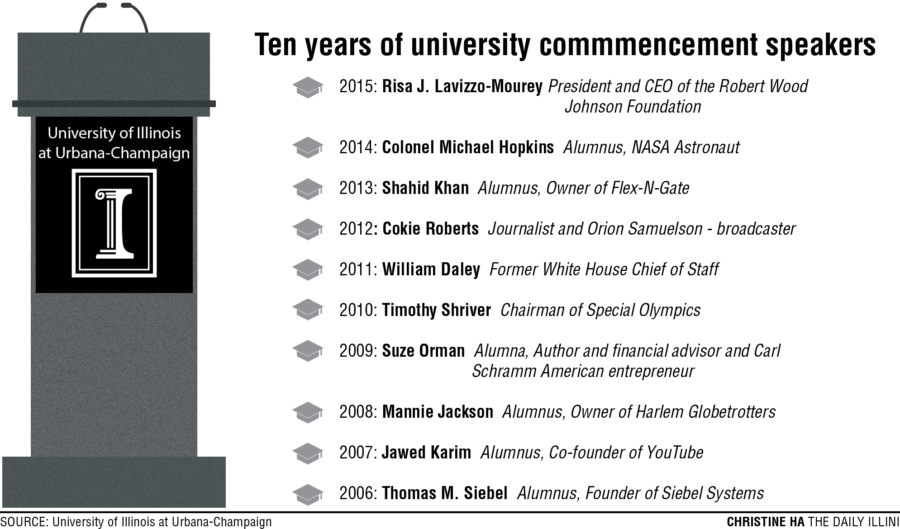Editorial: University should increase professional diversity of commencement speakers
April 3, 2016
The keynote address is nearly always the most anticipated part of any commencement ceremony.
Aspiring students entering their respective fields are eager to change the world, looking for guidance from a commencement speaker who has already done so.
The University announced Thursday that Jeff Huber will be the keynote speaker at the school’s commencement ceremony in May. Huber is the CEO of Grail, a cancer research startup, and a former Google executive who graduated from the University in 1989.
Huber is notable for helping develop Google Maps in his time with the technology giant before leaving to start Grail.
While Huber’s résumé is impressive, and is absolutely worthy of recognition by the University, the Editorial Board would’ve preferred a different commencement speaker who could have broken the trend of addresses from those with science and business backgrounds.
Get The Daily Illini in your inbox!
Other Big Ten schools such as Michigan and Wisconsin have featured speakers such as President Barack Obama and Katie Couric, respectively. Both were not graduates and had no affiliation with the respective schools before they were slated to be keynote speakers.
With visits from Sen. Bernie Sanders, Vice President Joe Biden and Associate Justice for the Supreme Court of the United States Sonia Sotomayor, the status of the University has clearly risen in recent years. This should open up the opportunity for the University to attract more well-known keynote speakers.
It should also allow the University to select from a more diverse group. Few University speakers have hailed from creative fields in the past several years, and this is something the University should explore further.
While it’s important to acknowledge the success of the University’s engineering and business schools, there’s no need for nearly every keynote speaker over the past decade to represent those fields.
If the University must go outside the alumni base to access an even higher tier of speakers, then it should be done. Perhaps getting perspective from successful people outside the University’s reach would be beneficial for students.
None of this is to discredit Huber, or imply that he isn’t fully qualified to be the next great addition to the University’s history of commencement speakers. But given recent events on campus, it’s tempting to dream of Obama speaking in his first year out of office, or somebody of significant prestige from the entertainment or music industries.
There are plenty of people who would love to speak at Illinois’ commencement. The University has proven it can attract big names, and its graduating students could benefit from a more diverse group of future commencement speakers.







